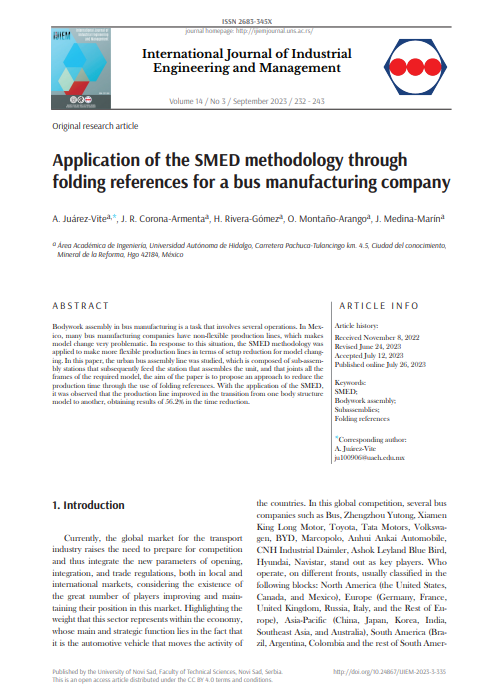Application of the SMED methodology through folding references for a bus manufacturing company

Published 2023-09-12
abstract views: 503 // FULL TEXT ARTICLE (PDF): 0
Keywords
- SMED,
- Bodywork assembly,
- Subassemblies,
- Folding references
How to Cite
Copyright (c) 2023 International Journal of Industrial Engineering and Management

This work is licensed under a Creative Commons Attribution 4.0 International License.
Abstract
Bodywork assembly in bus manufacturing is a task that involves several operations. In Mexico, many bus manufacturing companies have non-flexible production lines, which makes model change very problematic. In response to this situation, the SMED methodology was applied to make more flexible production lines in terms of setup reduction for model changing. In this paper, the urban bus assembly line was studied, which is composed of sub-assembly stations that subsequently feed the station that assembles the unit, and that joints all the frames of the required model, the aim of the paper is to propose an approach to reduce the production time through the use of folding references. With the application of the SMED, it was observed that the production line improved in the transition from one body structure model to another, obtaining results of 56.2% in the time reduction.
Article history: Received (November 8, 2022); Revised (June 24, 2023); Accepted (July 12, 2023); Published online (July 26, 2023)

